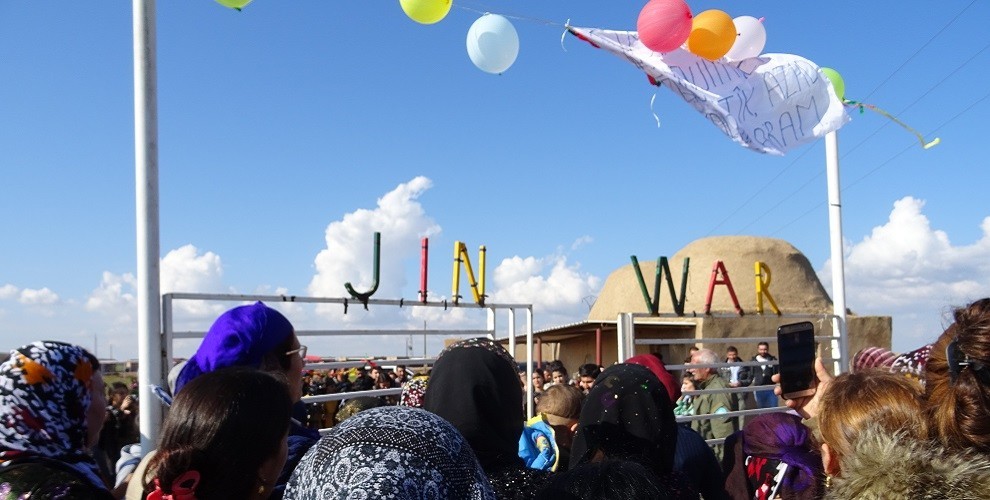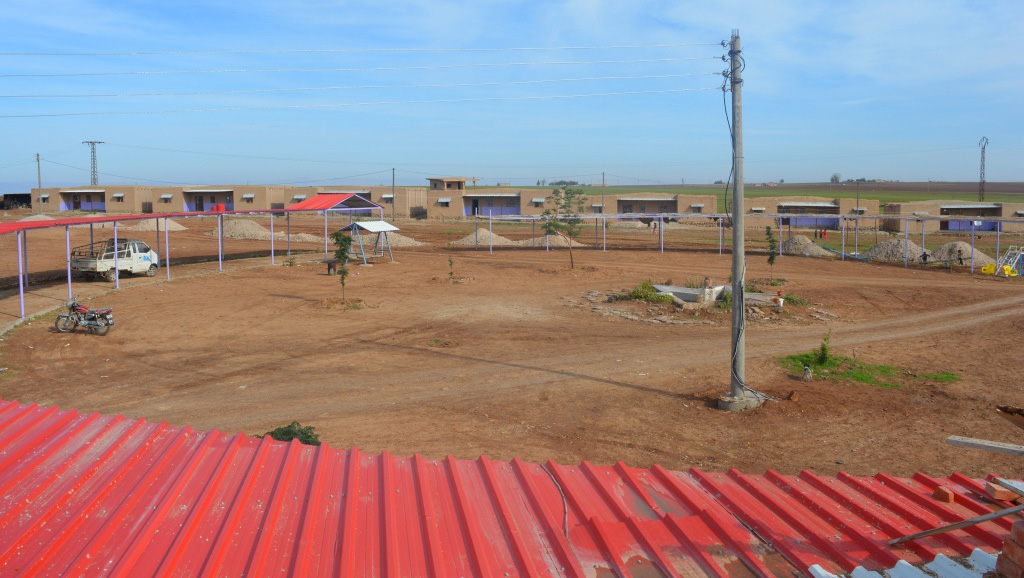Jinwar Village Council formed
The Jinwar Village that opened its doors with a mass ceremony on November 25 International Day Against Violence Against Women has formed its village council.
The Jinwar Village that opened its doors with a mass ceremony on November 25 International Day Against Violence Against Women has formed its village council.

Women’s institutions in the Cizire Region started working in 2016 on building a special women’s village named Jinwar in the Dirbêsiyê district of the Hesekê Canton. The Jinwar Village is the first village in the Middle East that has been built for women. The village consists of 30 houses, a school named Mother Uveysh School, the Jinwar Academy, a medical center, a bakery and a shop. All houses are mud-bricks, and all doors face each other.

The founding of a women’s village was proposed by Kurdish People’s Leader Abdullah Öcalan, and after the Rojava Revolution, the women’s revolution, this idea was put into practice. Women’s organizations and engineers had several meetings and in the end decided to start works for the village in 2016.
The village was opened on November 25 International Day Against Violence Against Women, and 8 families have already settled in and started living communally in the village, which has been prepared for victims of patriarchy, families of martyrs and women who want to live in the village.
After women settled in the Jinwar Village, they started organizing efforts and formed their village council.

Jinwar Village Spokesperson Fatma Derwish stressed that the work in the village will be done communally: “After the village opened, the women in the village allocated among themselves the tasks of cooking, agriculture, security and other tasks. There will be weekly meetings, and the council will meet once a month to change working areas. Meanwhile, education sessions will be held so women can know themselves and assess the women’s situation.”
Derwish said the village’s doors are open for surrounding villages as well. “Other villagers can bring their children to the village school, buy bread from the bakery or participate in the education sessions.”